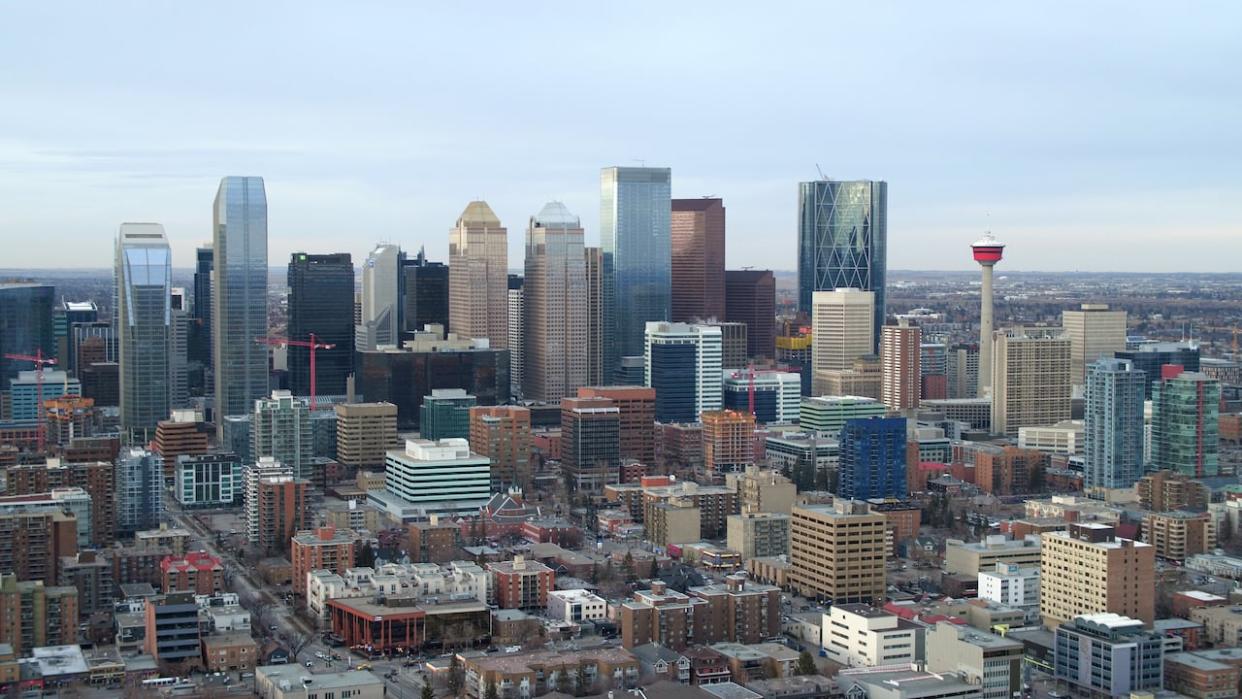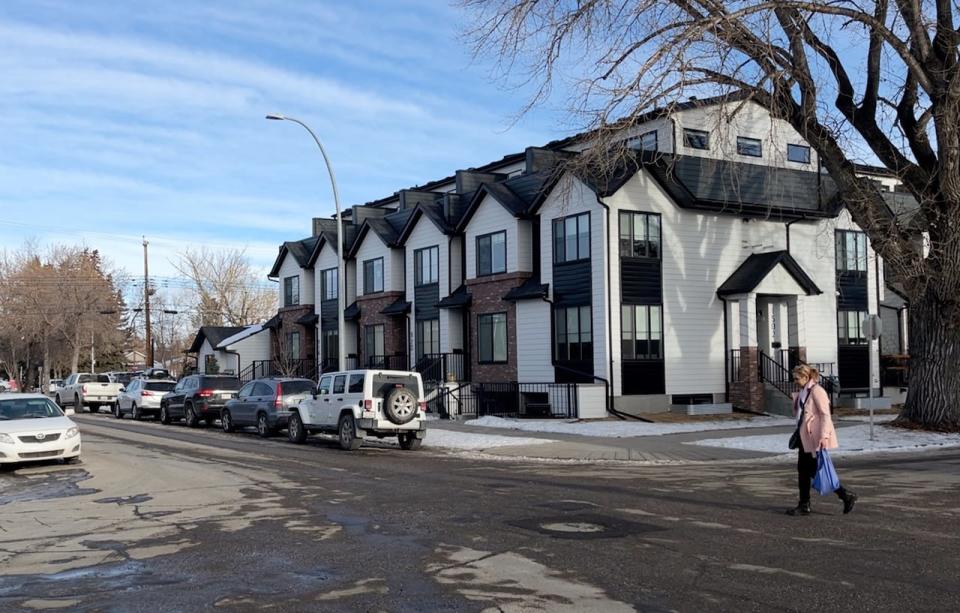6 city councillors want to send Calgary's rezoning proposal to a plebiscite

A Calgary city council notice of motion to send proposed citywide changes on zoning rules to a public vote has already been endorsed by at least six councillors.
Council has scheduled a public hearing on the upzoning proposal for April 22.
If approved, it would allow row houses and townhomes to be built in residential areas on lots currently zoned for single family houses.
It's a key part of the city's housing strategy — which the city says is an important measure to address housing supply and affordability.
But some city councillors believe residents still don't have enough of a say, which is why they're hoping to take it to a vote.
Six councillors have signed on in support of the plebiscite motion:
Sonya Sharp (Ward 1).
Sean Chu (Ward 4).
Terry Wong (Ward 7).
Andre Chabot (Ward 10).
Dan McLean (Ward 13).
Peter Demong (Ward 14).
Coun. Demong says he's still curious if the new zoning proposal would impact affordability.
"It's not saying no to the affordable housing strategy," he said. "This wouldn't delay the housing strategy in any way, shape or form. It would delay one simple portion of the housing strategy."
But not everyone is convinced the plebiscite is a good idea.
Coun. Jasmine Mian says council is already planning to hold a public hearing on the proposal. The Ward 3 representative also fears a plebiscite will give a vote on the issue to residents who wouldn't be affected by the change.
She's referring to the thousands of people who live in newer areas of the city that are already zoned to all such developments.
"The benefit of a public hearing is that everyone can come and speak to it," said Mian.
"I'm honestly just confused about how we could even structure a plebiscite question that would get at what we're trying to get at, and include the people who are affected, and not the people who are not affected."
The councillor says she's concerned that even the people who are opposed to the rezoning won't be well served by a plebiscite.

A multi-family housing development in Inglewood. The city's new housing strategy would see zoning rules change to allow for townhomes and row houses in all residential areas in Calgary. (Bryan Labby/CBC)
But McLean said he believes residents aren't feeling heard, so the best way to connect with Calgarians is through a plebiscite.
"We should be building up and out, not just one or the other," said the Ward 13 councillor. "I have nothing wrong with density, but it should be done in the right places."
McLean, who has historically been opposed to the citywide rezoning, believes it will have a direct financial impact on property owners, adding he would be open to changing his perspective on the issue after hearing from residents via a vote.
He also says no one currently on council ran on this proposal in the last municipal election.
Federal funds called into question
If the motion succeeds and the topic does become a plebiscite, Calgarians would vote on the rezoning rules when they hit the polls in October 2025 to elect the next city council.
But still unclear is how this vote could impact federal contributions to Calgary's housing crisis via the Housing Accelerator Fund (HAF).
In September of last year, Mayor Jyoti Gondek took to X, formerly known as Twitter, to express concerns that Ottawa wouldn't fund the strategy unless zoning laws were changed, after being sent a letter from the federal minister of Housing, Infrastructure and Communities, Sean Fraser.
Announced near the end of last year, the federal government agreed to give $228 million to Calgary over a four-year period for the construction of nearly 7,000 new homes as part of HAF.
Still, McLean says Calgarians should have a say on the issue, regardless of how it could impact federal capital.
"I will not be bribed by the Trudeau government to change my zoning laws over money," he told reporters on Thursday.
Because the proposed citywide changes have left Calgarians divided, various public engagement measures have been hosted by the city to address resident questions and concerns.
During the city's public engagement sessions, residents in favour voiced that it was needed to address housing, but those opposed are concerned it could change their neighbourhoods.
In 2021, around 84,600 Calgary households were forced to shell out more than 30 per cent of their total income on housing — which means one in five households struggled to afford housing costs, according to the Housing Needs Assessment report released by the City of Calgary last year.
City council will vote on the motion on March 19. If it's approved, the public hearing on April 22 would be cancelled.


